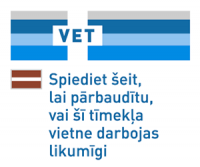KAĶIS ATVEMJ SPALVU KAMOLUS

Kā zināms, kaķi daudz laika pavada laizoties, mazgājoties un izvelkot savas spalvas ar mēli. Tā kaķis sevi apkopj, un šāda uzvedība ir īpaši svarīga tā veselībai un higiēnai.
Taču spalvu norīšana šādu mazgāšanās rituālu laikā ir parasta parādība un pat nerada nekādas problēmas, jo norītās spalvas tiek izvadītas ārā. Tomēr dažreiz tās paliek kuņģī un uzkrājas, veidojot spalvu kamolus vai kumšķus. Vai tā ir arī, kad kaķis vemj? Jā, jo tādā veidā dzīvnieks var atbrīvoties no spalvu kamoliem.
KĀPĒC KAĶI ATVEMJ SPALVU KAMOLUS?
Daži pētījumi apstiprina, ka spalvu kamolu atvemšanu nedrīkst uzskatīt par normālu parādību, kaut arī tas mēdz notikt samērā bieži. Vairumā gadījumu īsspalvaini kaķi un dažkārt garspalvaini kaķi nekad neatvemj spalvu kamolus. Turklāt, nav standarta parametru daudzumam vai biežumam, kāpēc kaķis atvemj, lai atbrīvotos no spalvu kamoliem. Tāpēc, ja kaķis šī iemesla pēc vemj ilgstoši, ir svarīgi tam pievērst pastiprinātu uzmanību, jo tam par cēloni var būt kāda slimība, palielināts norīto spalvu daudzums vai samazināta kuņģa un zarnu trakta motilitāte.
BIEŽĀKIE CĒLOŅI, KURU REZULTĀTĀ VEIDOJAS SPALVU KAMOLI
Visbiežāk sastopamie cēloņi, kuru rezultātā veidojas spalvu kamoli kaķa kuņģī, ir:
spalvu mešanas sezonas: kažoka maiņa notiek pavasarī un rudenī; tas ir cēlonis, kura rezultātā spalvu kamolu atvemšanu var uzskatīt par relatīvi normālu parādību, visbiežāk tāpēc, ka tās uzkrājas kuņģī biežāk nekā parasti;
nepietiekams uzturs: sliktas kvalitātes uzturs, kas balstīts uz neatbilstošām sastāvdaļām vai kurā trūkst svarīgu barības vielu kā, piemēram, dažas aminoskābes, taukskābes vai vitamīni, ietekmē kažoka novājināšanos, un tāpēc spalvas viegli izkrīt; tādējādi mazgāšanās rezultātā kaķis tās ielaiza pārmērīgā daudzumā;
dermatoloģiskas problēmas: niezi izraisošas ādas slimības, blusas vai iekaisumu patoloģijas var veicināt gan spalvu izkrišanu, gan laizīšanās biežuma palielināšanos;
stresa situācijas: jebkurš stresu veicinošs apstāklis, kas kaķi ietekmē ilgstoši, var provocēt izmaiņas tā uzvedībā, kas izsauc pastiprinātu tieksmi laizīties, piemēram, dzīvesvietas maiņa, citu dzīvnieku uzņemšana mājoklī, nabadzīgi iekārtota vide u.tml.;
zarnu trakta patoloģijas: dažas zarnu iekaisumu slimības var radīt kuņģa motilitātes izmaiņas un apgrūtināt spalvu izvadīšanu caur kuņģa un zarnu traktu.
Līdzīgi arī, ja vemšanu pavada citi simptomi, tam par iemeslu var būt kāda pamata slimība. Starp šiem simptomiem var būt:
kuņģa un zarnu trakta izmaiņas, piemēram, caureja vai aizcietējums;
- izmaiņas izkārnīšanās un mazgāšanās paradumos, aktivitātēs, mijiedarbībā ar cilvēkiem u.tml.
- ādas un kažoka slimības;
- ēstgribas zudums;
- apātija;
- svara zudums;
- paaugstināta temperatūra.

KĀ TIKT GALĀ AR SPALVU KAMOLIEM
Lai novērstu spalvu kamolu veidošanos kaķim ir ieteicams:
- sukāt kažoku: ir svarīgi ieviest regulāru sukāšanas režīmu, jo īpaši, ja kaķim ir garas spalvas; sukāšana palīdz izņemt atmirušās spalvas no kažoka, kas savukārt novērš spalvu kamolu veidošanos kuņģī; sukāt kažoku vienreiz vai divreiz nedēļā ir pietiekami īsspalvainam kaķim, bet garspalvanam kaķim vai jebkuram kaķim spalvu mešanas sezonā kažoks ir jāsukā katru dienu;
- atbilstoši barot: lai kaķis būtu vesels un justos labi ir svarīgi nodrošināt tam līdzsvarotu diētu ar augstas kvalitātes sastāvdaļām, kas atbilst uztura prasībām;
- dot speciālu zāli kaķim: ir pieejama ēdama zāle, kas palīdz kaķim izsaukt vemšanu, kad viņam ir kuņģa un zarnu darbības traucējumi; vienlaikus, nepieļaujiet, ka viņš ēd indīgus krāšņumaugus; nejaukt šo zāli ar kaķumētru, kurai ir citas funkcijas;
- dot kaķim produktus uz iesala bāzes: tas palīdz izvadīt spalvu kamolus kopā ar izkārnījumiem;
- tikt galā ar stresu: ir svarīgi zināt sava kaķa fiziskās un psiholoģiskās vajadzības; adaptēšanās periodi jaunās situācijās un vides bagātināšana ir līdzekļi, kas palīdz kaķim uzturēt psiholoģisku līdzsvaru.
Katrs kaķis ir atšķirīgs, taču spalvu kamolu atvemšana nav normāla parādība, kā varētu šķist. Tāpēc, palielinoties vemšanas gadījumu biežumam, ir ieteicams vērsties pie veterinārārsta. Vienlaikus arī preventīvi pasākumi palīdzēs uzturēt jūsu kaķa veselību un labsajūtu.
Ziņojumu nav
Uzrakstīt atsauksmi- Rīga, Krimuldas iela 10, Rīga, LV1039, Latvija
- +371-28235235
- Pi-P. 9.00 - 17.00
- info@zooseta.lv
- Skatīties uz kartes

